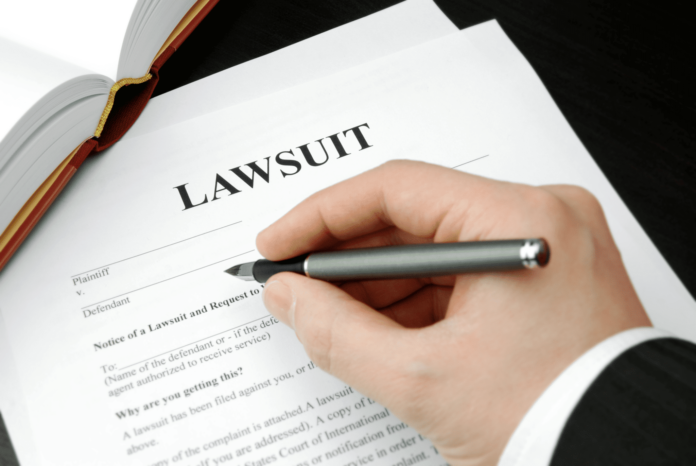Personal injury law is a complex and often times time-consuming process. It consists of filing a lawsuit, gathering evidence, and preparing for trial. Suppose you have been injured in an accident. In that case, you will likely be dealing with the insurance companies of the at-fault party and your own insurance company to receive compensation for your injuries and damages.
If you are planning on filing a personal injury lawsuit, it is important to prepare as much as possible before you file your complaint with the court. Many plaintiffs often underestimate the amount of time and energy required to prepare for a trial, which can result in them settling their case for less than it is worth.
]=If you or a loved one has been injured in an accident, you may be wondering what steps to take next. Whether you have suffered a physical injury, or emotional distress as a result of the accident, filing a personal injury lawsuit may help to cover any medical bills and other expenses. If you are considering taking legal action after suffering an injury, you should consult an attorney to better understand your rights and options.
An attorney like those at Rosenfeld Injury Lawyers can advise you of your best options and help you throughout the legal process. Listed below are a few basic steps you can take after an accident to ensure that your case is filed properly and that you receive the maximum compensation available under the law.

1. Get Medical Attention
If you believe that your injuries were caused by the actions or negligence of another individual, the first step is to seek medical attention. Even if you do not initially think you have been seriously injured, it is important to see a doctor to ensure that you do not have an underlying condition that may require treatment in the future. Your doctor can record your injuries and provide documentation that you can use when filing your claim. In addition to documenting your injuries, your doctor’s records can also demonstrate the extent of your medical treatment, which can help prove the full extent of your losses.
2. Contact Your Insurance Company
After you have obtained medical treatment for your injuries, the next step should be contacting your insurance company and informing them of your situation. You should also inform them that you have been involved in an accident and seek appropriate compensation for your injuries. Most insurance companies have a claims department that is responsible for managing and processing claims. In some cases, you may need to file a formal claim before the company can provide you with benefits to cover the costs of your injuries.
Typically, you will be required to submit copies of your medical records and bills along with a letter detailing the accident’s details and the impact it had on your life. After reviewing this information, the insurance company will make a decision regarding your claim and notify the proper parties of their decision.
If your insurance company denies your claim, this does not necessarily mean that you are not eligible for compensation. It means that you will need to submit additional information and/or provide evidence to support your claim. You may receive an additional denial if your provided information is deemed insufficient to support your claim. If this happens, you should seek the advice of a qualified attorney who can help you gather the necessary evidence to resubmit your claim.

3. Hire an Attorney
When you have exhausted all options with your insurance company and they refuse to provide you with compensation, the next step is to hire an attorney to help you pursue your claim. A personal injury attorney can help you file a civil suit against the person responsible for your injuries and help you recover the damages to which you are entitled.
These damages can include medical expenses, lost wages, pain and suffering, and other related costs. Depending on the circumstances surrounding your case, you may be entitled to additional damages to cover your long-term or permanent injuries and other losses.
If you cannot work due to your injuries, your attorney can also help you file a disability claim with the appropriate government agency. This will allow you to continue receiving financial support while you cannot return to work. In most cases, you will have to pay a contingency fee to your attorney to represent you in your case. This means that you will pay a percentage of your recovery as compensation for your attorney’s services. Depending on your case and the amount of damages you recover from the other party, this can amount to thousands of dollars in fees.
4. Settlement Process
Once you’ve hired a personal injury attorney, you will be on your way to recovering the damages to which you are entitled. If your case does not go to trial, your personal injury attorney will typically attempt to reach a settlement with the defendant before the case goes to trial. During settlement negotiations, your attorney will help you determine a fair amount for your damages and calculate the total amount of damages you are entitled to recover.
They will also help you determine the fair market value of any future medical expenses you may sustain due to your injuries. By conducting these negotiations on your behalf, your attorney can negotiate a settlement amount that will provide you with the maximum compensation possible. Suppose a settlement cannot be reached during the negotiation process. In that case, your attorney will advise them that you are willing to proceed with the litigation process if they cannot reach an agreement with you.

Conclusion
Personal injury claims can be complex and difficult to pursue on your own. Hiring an attorney is the best way to get the results you need and the compensation you deserve for your injuries. If you have been seriously injured in an auto accident or other incident caused by someone else’s negligence, contact an experienced personal injury attorney today to learn more about your rights and your options moving forward. Insurance providers will do everything they can to avoid paying out on your claims whenever possible. This makes it especially important to have an experienced attorney on your side who understands how to effectively handle these types of cases from start to finish.









